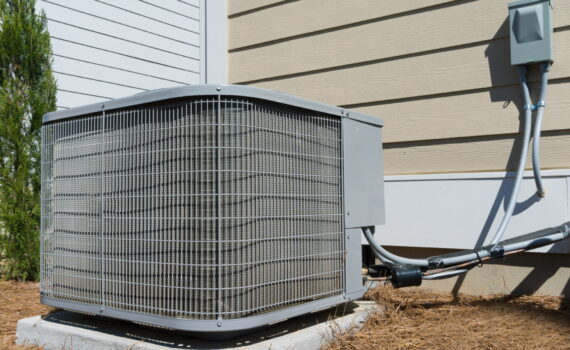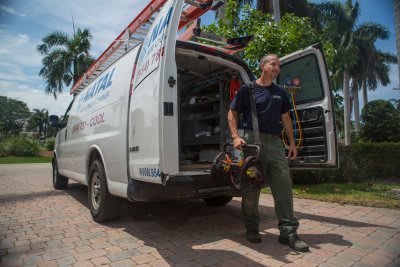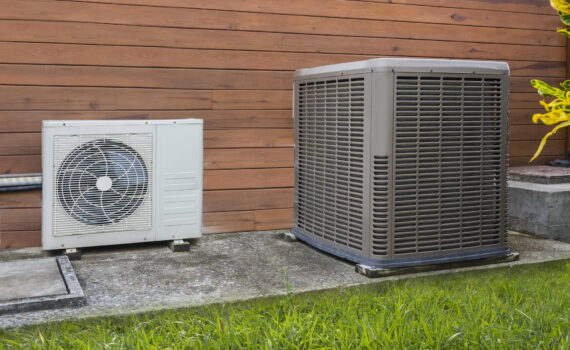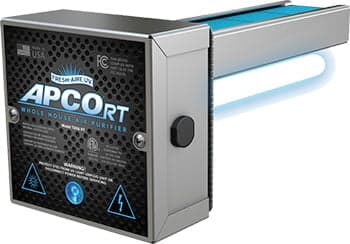
Why Is My Air Conditioner Blowing Hot Air?
You’re in your home when you feel a drop of sweat creep down your forehead. You start to think that’s weird because your air conditioner should be on cool.
The problem you are facing is one that many homeowners have. So, why is your air conditioner blowing hot air? There are many reasons this could be happening.
Read on to find out the most common causes.
Incorrect Thermostat Temperature
If your air conditioner is blowing hot air, the first thing you’ll want to do is double-check your thermostat. It’s possible that you accidentally set your thermostat to heat.
Double-check the thermostat settings to ensure it’s set to cooling mode and at the desired temperature. Additionally, consider replacing the batteries if it’s a battery-operated thermostat, as low batteries can sometimes cause the thermostat to malfunction.
If this is your problem, you’ll be glad you checked instead of calling a residential AC maintenance service.
Additional Tips:
- Ensure your thermostat is placed away from heat sources like direct sunlight, lamps, or appliances that can give off heat, as this can cause incorrect temperature readings.
- Consider upgrading to a programmable or smart thermostat for more precise control over your home’s temperature.
Your Unit Lost Power
Air conditioners are made up of an indoor and outdoor units. If the outdoor unit loses power, it could be causing your AC to blow hot air.
The cause of this could be the circuit breaker or a blown fuse. You can check your circuit breaker and fuse panel to see if this is the problem, but you will need to have it resolved by a professional.
Another potential issue could be a tripped safety switch. Some air conditioning systems have safety switches that shut off the unit when there is a potential electrical issue. If you suspect this is the case, it’s best to contact a professional to inspect and reset the switch if necessary.
Additional Tips:
- Regularly check and reset the circuit breakers to ensure they are not the cause of the problem.
- Have a professional inspect the electrical connections and components during routine maintenance to prevent power-related issues.
Low Refrigerant
The AC unit might be low on refrigerant if the air in your home is warm. If this happens, you probably have a refrigerant leak somewhere in the system.
The air conditioner will work overtime to try to reach the temperature your thermostat is set to but be unable to because of the leak.
An HVAC technician can figure out where the leak in the system is and repair it for you. After repairs and restoring refrigeration levels, your problem will be solved.
Low refrigerant not only affects the cooling efficiency but can also damage the compressor if left unchecked. Regular maintenance checks can help identify refrigerant issues early on, saving you from costly repairs in the future.
Additional Tips:
- Be aware of signs of refrigerant leaks such as hissing sounds, ice buildup on the refrigerant lines, or a noticeable decrease in cooling efficiency.
- Schedule annual HVAC check-ups to ensure the refrigerant levels are properly maintained.
Dirty Evaporator Coils
Keeping your evaporator coils clean is one of the keys to keeping your home cool. If your AC is blowing warm air because of a dirty coil, you’ll need to complete an air conditioner tune-up.
Likewise, you’ll want your air filters to stay clean. Air filters won’t affect the temperature in your home, but they can cause your evaporator coil to get dirty.
If the evaporator coil is covered in debris or dirt, cool air won’t come from your system. Regular AC maintenance can help you avoid this issue in the future.
In addition to regular cleaning, consider using high-quality air filters and changing them every 1-3 months. This simple step can significantly improve airflow and system efficiency, preventing the coils from getting dirty.
Additional Tips:
- Schedule professional cleaning of the evaporator coils at least once a year to maintain optimal performance.
- Ensure that the area around your indoor unit is clean and free of dust and debris that could contaminate the coils.
Clogged Condenser Coils
If you’ve checked your indoor evaporator coils and don’t see an issue, the problem could be stemming from your outdoor condenser coils.
These coils need free airflow that can only occur if they are unclogged. To clean the condenser coils, you’ll want to turn off your unit and rinse the debris. You can do this with a garden hose.
For a deeper clean, consider using a specialized coil cleaner available at most hardware stores. Ensure the power is completely off before cleaning to avoid any electrical hazards. Keeping the area around the outdoor unit clear of plants, grass, and other obstructions can also help maintain good airflow.
Additional Tips:
- Trim back any vegetation around the outdoor unit to maintain a clear space for proper airflow.
- Clean the condenser coils at least twice a year, especially before the summer season, to ensure efficient cooling.
Are You Taking Care of Your Air Conditioner?
If you keep up with regular maintenance and cleaning for your air conditioner, you should be in good hands. However, leaks and a loss of power can occur at any time.
If you can’t find the issue when your AC unit is blowing warm air, seek out a professional AC company for help.
For reliable AC services, Natal Air Conditioning is here for you. We’re just a call away so contact us today!










